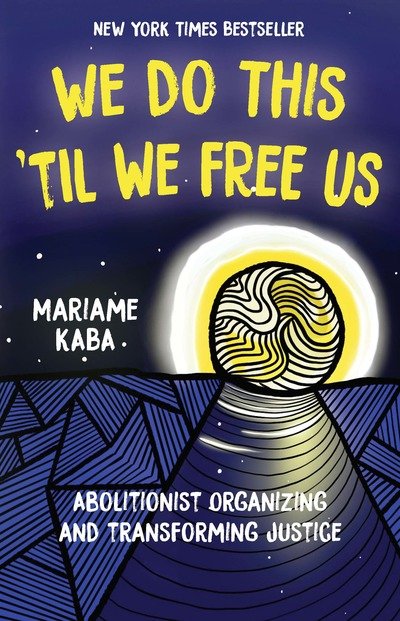TJ Skill-Up Institute
This worksheet will take you through naming your conflict transformation skills, areas where you can keep building and deepening those skills, relationships that can support you in that work, and structures that can be resources where you are.
Navigating Public Safety Task Forces
This guide from the ground gathers lessons and victories from organizers who called for and engaged with public safety task forces over the past year — and the past decade. It is intended to support communities navigating common questions, taking into account the particular conditions of their own communities.
Against Punishment Curriculum
How do we imagine a world without prisons and policing? Transforming our punishment mindsets is a daily discipline. Punishment is so deeply ingrained that we fail to even notice how we enact it in our lives. It takes practice to uproot it and to focus on being more restorative in our interactions.
What About The Rapists?
When prison industrial complex abolitionists tell people that they want to abolish police and prisons, they invariably ask, “what about the rapists?” Explore brief answers to this question, as well as questions that abolitionists can ask in return.
Cop’s Don’t Stop Violence
Combating Narratives Used to Defend Police Instead of Defunding Them
Defund the Police - Invest in Community Care
The primary purpose of this guide is to serve as a pragmatic tool for individuals and communities organizing and advocating for non-police mental health crisis responses, and to offer key considerations for what can be a complex, costly, and long-term intervention strategy.
A Restorative Conversation Toolkit
What is a restorative conversation? How do we ground our conversations in seeing each other's humanity? Explore “A Restorative Conversation Toolkit” and learn about restorative justice values and principles, the goals and strategies of restorative conversations, and how to craft your own restorative questions.
Breaking the Silence
This is a curriculum for sexual assault service providers intended to accompany Interrupting Criminalization’s report Shrouded in Silence: Police Sexual Violence - What We Know and What We Can Do About It. Facilitators and participants are strongly encouraged to review the report before using any of the exercises in this curriculum.
Shrouded in Silence
This report, in conjunction with an accompanying curriculum for sexual assault service providers, is intended to contribute to breaking this silence, to summarize what we know about sexual violence by law enforcement officers, and to offer concrete steps toward prevention of police sexual violence and increased safety, support, and opportunities for healing for survivors.
Introduction to Get in Formation
“Get in Formation: A Community Safety Toolkit” is a collection of security and safety practices built by years of learning from Black, Indigenous, and People of Color movements within the U.S.
Criminalizing Survival Workshop
Join Project Nia founder Mariame Kaba for a presentation on the "Criminalizing Survival Curricula" made in conjunction with Survived & Punished. Criminalizing Survival includes curriculum units and activities that can be used for political education focused on the intersections between racialized gender-based violence and criminalization.
We Do This 'Til We Free Us: Abolitionist Organizing and Transforming Justice
What if social transformation and liberation isn’t about waiting for someone else to come along and save us? In this timely collection of essays and interviews, Mariame Kaba reflects on the deep work of abolition and transformative political struggle.
Turning Towards Each Other
Jovida Ross and Weyam Ghadbian wrote the Turning Towards Each Other Conflict Workbook with the hopes of supporting people working towards social justice to build our collective conflict resilience and strengthen relationships, movements, and collective wellbeing.
The Demand Is Still #DefundPolice
This update to our June 2020 #DefundPolice toolkit reflects victories won across the country, key strategies deployed, some lessons learned - including tricks, tensions, and roadblocks along the way - and key questions communities are contending with in campaigns to defund police as we look forward to 2021.
Two Sides of Justice Curriculum
In this session, we will explore the ‘Two Sides of Justice‘ curriculum by engaging in the activities and discussing how and where this curriculum could be implemented. We will discuss questions like: What is justice? How can we address violence in non-punitive ways? How do carceral systems impact people who cause harm and who have been harmed?
Police Responses to Domestic Violence: A Fact Sheet
Defunding police is a survivor-led anti-violence strategy that stops police from looting resources survivors need to prevent, avoid, escape and heal from violence - and puts more money into violence prevention and interruption.
Creating Community in Classrooms
What are the building blocks for sharing space and how can we use them to address our needs as learners and educators? In this session, we will use the resource "How to Share Space: Creating Community in Classrooms and Beyond" as a springboard to explore the opportunities presented by these changing norms and the challenges they bring.
Unmasked: Impacts of Pandemic Policing
The COVID19 Policing Project is a collaborative effort to track and challenge policing and criminalization in the context of the coronavirus pandemic, including the violent policing of protest which further jeopardizes public health.



















